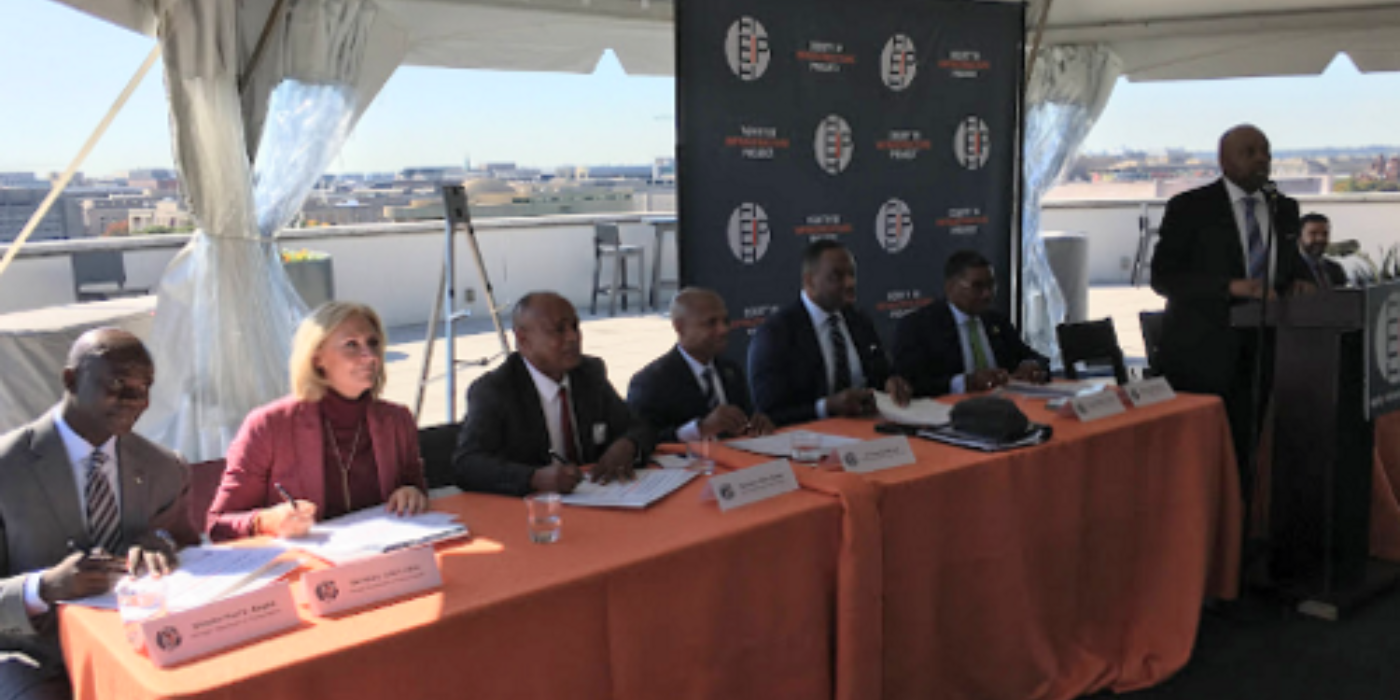On October 11, six state department of transportation chief executives signed a national pledge at a ceremony in the nation’s capital as part of their commitment to expand equity opportunities in the infrastructure sector.
Those state DOTs – representing California, the District of Columbia, Illinois, Kansas, Louisiana, and Michigan – pledged to create opportunities for historically underutilized businesses or HUBs as they disburse funding from the $1.2 trillion Infrastructure Investment and Jobs Act, enacted in November 2021.
The event, sponsored by the Equity in Infrastructure Project or EIP, defines HUBs as firms formally designated as disadvantaged business enterprises (DBEs), minority and women-owned business enterprises, small business enterprises, as well as any other business classification used locally in the United States intended to boost the participation of otherwise underutilized firms.
“It takes leadership from the top to sign a pledge like this,” explained Phil Washington, CEO of Denver International Airport and co-founder & chair of the EIP, at the signing event that took place the United Brotherhood of Carpenters and Joiners of America international headquarters building in Washington, D.C.
Through the pledge, the EIP works to secure commitments from public agencies to improve public contracting practices to help build generational wealth and reduce the racial wealth gap by creating prime, joint venture, and equity contracting opportunities for HUBs.
“We want to see over the next five years all 50 state DOTs signed up for EIP,” Washington said. “We hope in five years that we become the model for any public infrastructure agency to include minority, women, and veteran-owned businesses in the infrastructure space. We want everyone to reap the benefits of infrastructure investment and we want to see generational wealth spread to communities that historically have not seen that.”
“This pledge helps create more prime contracting opportunities,” noted Shawn Wilson, Ph. D., secretary of the Louisiana Department of Transportation and Development and the 2021-2022 president of the American Association of State Highway and Transportation Officials.
“From an economic development perspective, from a workforce perspective, and from a doing-what-is-right perspective, this is why signing this equity in infrastructure pledge is important,” he said.
“Transportation at its best is supposed to be a bridge, a connector to life, and we bear a responsibility to make that so,” added Toks Omishakin, secretary of the California State Transportation Agency. “We must use this commitment to lift up everyone in our states so as to ensure that all people truly get a chance at the opportunities infrastructure projects provide.”
“To me, as a civil engineer, I’ve never seen this level of infrastructure investment before,” emphasized Paul Ajegba, director of the Michigan Department of Transportation. “That is why it is a great time to be in our industry.”
Everett Lott, director of the District of Columbia Department of Transportation, noted at the signing that the pledge “helps us ensure we provide a safe and reliable multimodal network for all residents and businesses in Washington D.C. It also helps us continue to provide rich opportunities for our DBEs so they can grow, connect, and thrive in the nation’s capital.”
Omer Osman, secretary of the Illinois Department of Transportation, noted that the funding provided by the IIJA provides a “historic moment” for state DOTs to advance equity in the infrastructure space. “Shame on us if we don’t take advantage of it,” he stressed.
Julie Lorenz, secretary of the Kansas Department of Transportation, added, “We are here not just to build physical infrastructure but human capacity as well. This is not just about us; it is about creating opportunity for all who follow after us. We need to make sure we do not leave talent on the table and we need to move forward with urgency.”
